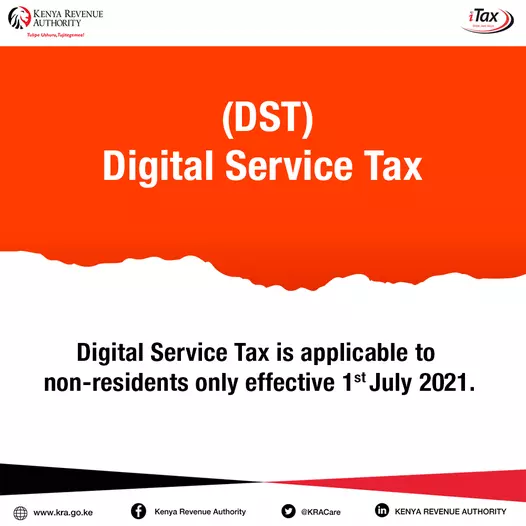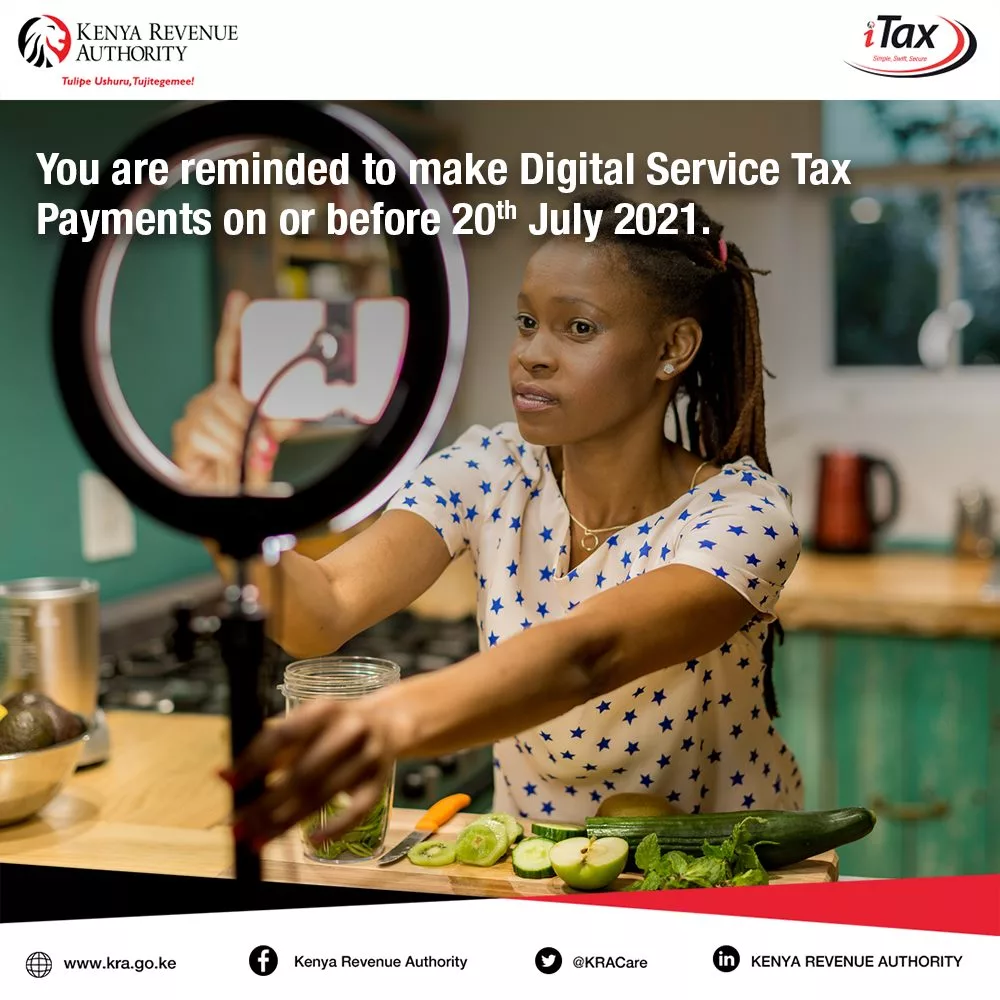June 29th 2021, marked the signing of the Finance Act 2021 by President Uhuru Kenyatta with gazettement following shortly after on 1st July 2021.
Introduction of Digital Service Tax in Kenya
The bill had proposed amendments on various statutes including the Income Tax Act which houses the Digital Service Tax (DST). The Digital Service Tax was introduced into the Income tax act for the first time in the Finance Act 2019. Since then, the act has undergone improvements in the Finance Act 2020 and now Finance act 2021.


Exemption of Residents from Digital Service Tax
Previously, the DST regime applied to both residents and non-residents who fell under the bracket of Digital Service Providers, digital marketplace providers and appointed tax representatives. In the new bill, Resident individuals have been exempted from DST. This means that only non -resident individuals and any resident who provided services subject to DST between January and June 2020 will be required to comply and pay tax due.

Income Subject to Digital Service Tax
The bill also amended the scope of income that is subject to DST to include DST income from businesses carried out over the internet or an electronic network, including any platform that enables direct interaction between buyers and sellers of goods and services by electronic means.
Similarly, prior to 1st July 2021, DST was payable upon transfer of payment, it is now payable upon offering of a service. The act requires any person subject to DST to file their returns on or before the twentieth day of the month that follows when the service was offered.
Furthermore, Non-residents can now use foreign currency when carrying out business over the internet/electronic network including a digital marketplace which simplifies compliance for Non-residents provided the same is approved by the Commissioner.
What incomes are exempt from Digital Service Tax?
- Income subject to Withholding Tax
- Online services provided by Government institution
- Non-resident person who is in the business of transmitting messages via radio, cable, optical fiber, television broadcasting, internet satellite or other such methods of communication.
Finally, it is now a requirement for vendors to obtain a PIN in order to carry out businesses over the internet or an electronic network including through digital marketplace. This is meant to enhance compliance. The resident platform owners are to ensure that upon on boarding of such vendors, their PIN numbers are captured.
By Cynthia Kerubo
KRA Tax Education
BLOG 12/08/2021

